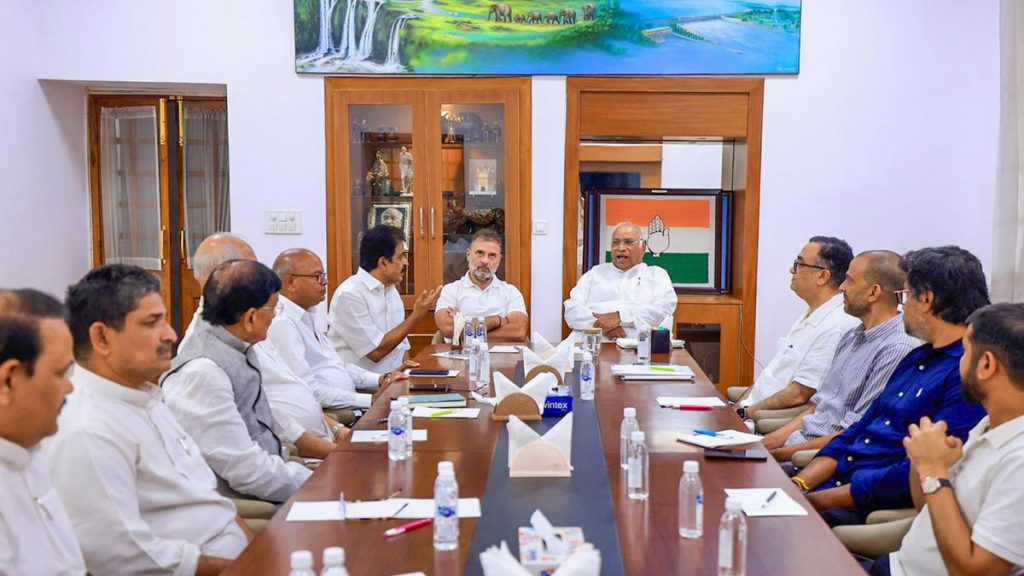Now Reading: Hindu Groups Plan Convention to Counter Ayyappa Summit
-
01
Hindu Groups Plan Convention to Counter Ayyappa Summit
Hindu Groups Plan Convention to Counter Ayyappa Summit

Speedy Summary
- The Sabarimala Karma Samiti (SKS) announced plans to hold ‘Sabarimala Samrakshana Sangamam’ in Pandalam on September 22.
- SKS general convener S.J.R. Kumar and leaders of Hindu organizations stated the event aims to counter the CPI(M)-led Kerala government’s proposed Global Ayyappa Summit.
- The Sangamam will focus on discussions about Sabarimala’s growth master plan and alleged “political conspiracies” targeting devotees.
- Mr. Kumar criticized the government’s involvement in organizing a religious summit, claiming it violates constitutional restrictions on elected governments meddling in religious matters.
- He alleged that real devotees are unlikely to attend the Global Ayyappa Summit, describing it as a political meeting involving atheists.
- The summit was reportedly announced by Kerala’s Devaswom Minister V.N. Vasavan, who invited politicians such as Tamil Nadu Chief Minister M.K. Stalin.
- There were criticisms that promises to withdraw cases connected with past Sabarimala protests against women’s entry remain unfulfilled.
Indian Opinion Analysis
This development underscores heightened tensions between religious groups and the Kerala government over their respective roles in managing religious events like those surrounding Sabarimala temple, a important cultural and spiritual site for Hindus across India.
The SKS’s concern about political interference reflects broader debates about maintaining secular governance while respecting religious autonomy under India’s constitution. If proven correct that state funds or influence are utilized for organizing a faith-based summit, it could raise questions regarding separation of religion from government processes-a principle emphasized repeatedly by courts and policymakers.
The issue also highlights lingering controversies around protests at Sabarimala following Supreme Court judgments permitting women’s entry into the shrine-events marked by polarized reactions nationwide-and calls attention to unresolved legal matters stemming from them.
The upcoming sangamam may serve as an indicator of evolving public sentiment among key stakeholders, possibly influencing policy discourse around such high-stakes intersections of religion and governance within India’s pluralistic society.
Read more: Original Article Link
























